How to Get an FHA Loan After a Chapter 13 Bankruptcy in Florida (2025 Guide)
If you’ve filed for Chapter 13 bankruptcy and are looking to purchase a home in Florida, you may feel like homeownership is out of reach. However, thanks to the Federal Housing Administration (FHA), there are options available for you to secure a mortgage. In this comprehensive guide, we will walk you through how to get an FHA loan after Chapter 13 bankruptcy, including eligibility requirements, key steps to take, and common mistakes to avoid. We will also highlight important tips for improving your chances of approval.
What is Chapter 13 Bankruptcy?
Chapter 13 bankruptcy, often called “reorganization” bankruptcy, is a legal process designed for individuals to restructure their debts and repay creditors over a 3- to 5-year period. Unlike Chapter 7 bankruptcy, which may result in the discharge of most debts, Chapter 13 allows debtors to keep their assets while working out a repayment plan that is manageable based on their income.
However, bankruptcy can significantly affect your credit and your ability to qualify for a mortgage. Fortunately, FHA loans offer a potential path for homeowners who have successfully completed their bankruptcy repayment plan or are still in it.
Can You Get an FHA Loan After Chapter 13 Bankruptcy in Florida?
Yes, it is possible to get an FHA loan after filing for Chapter 13 bankruptcy. The FHA is more forgiving than many traditional lenders, and its guidelines are generally more lenient when it comes to past bankruptcies. However, there are specific conditions and requirements that must be met. Here’s a breakdown of the key FHA guidelines for individuals in Chapter 13 bankruptcy:
1. Waiting Periods:
•Chapter 13 Bankruptcy Completion: If you have successfully completed your Chapter 13 bankruptcy repayment plan, you can typically apply for an FHA loan immediately, as long as you’ve demonstrated a responsible track record of managing your finances post-bankruptcy.
•Chapter 13 Bankruptcy In Progress: If your Chapter 13 bankruptcy is still ongoing, you will generally need to wait at least 1 year before you can apply for an FHA loan. During this time, you must have made all your scheduled bankruptcy payments on time and maintain a positive payment history.
2. Credit Score Requirements:
The FHA doesn’t have a set credit score requirement for Chapter 13 bankruptcy applicants, but most FHA lenders require a minimum FICO score of 580 to qualify for the standard 3.5% down payment. If your credit score is between 500 and 579, you may still qualify for an FHA loan, but you will likely need to make a larger down payment of 10%. Your credit score and history should demonstrate a willingness and ability to manage debt responsibly after bankruptcy.
3. Proof of On-Time Payments:
One of the most important factors in securing an FHA loan after bankruptcy is demonstrating that you have been diligent about making your Chapter 13 payments on time. FHA guidelines require that you provide documentation showing that your Chapter 13 bankruptcy plan is current and that you’ve consistently made all payments as agreed. You will need to provide proof of this via court records or a statement from your bankruptcy trustee.
4. Bankruptcy Trustee Approval:
If you’re still in the process of Chapter 13 bankruptcy, FHA lenders typically require you to obtain approval from your bankruptcy trustee before moving forward with the loan application. The trustee will need to confirm that you’ve been complying with the terms of your bankruptcy repayment plan.
5. Stable Income:
FHA lenders will also require that you show stable and sufficient income to cover your mortgage payments. This means providing documentation such as pay stubs, tax returns, and proof of other income sources. If you’re self-employed, you may need to submit additional documentation, such as business financials, to demonstrate income stability.
Steps to Take When Applying for an FHA Loan After Chapter 13 Bankruptcy in Florida
If you meet the basic requirements and are considering applying for an FHA loan after Chapter 13 bankruptcy in Florida, here are the steps you should take to improve your chances of approval:
1. Wait for the Required Time Period
As noted earlier, FHA loans have different waiting periods depending on whether your Chapter 13 bankruptcy has been discharged or is still active. Make sure you understand these waiting periods and have completed the necessary time frames before applying.
2. Get Current on Your Bankruptcy Payments
Lenders will not approve an FHA loan application unless you can show that you’ve kept up with your bankruptcy payments. It’s essential that you stay current on your Chapter 13 plan and get a letter of recommendation or a court statement from your trustee.
3. Build Your Credit
While FHA loans are generally more lenient, it still helps to work on rebuilding your credit during the bankruptcy process. Start by paying down existing debts and keeping your credit balances low. Paying your bills on time will show the lender that you’re a responsible borrower and improve your credit score, increasing your chances of loan approval.
4. Save for a Down Payment
One of the main advantages of FHA loans is that they allow lower down payments, typically as low as 3.5%. However, if your credit score is under 580, you will likely need a larger down payment (10%). Start saving early to ensure that you have enough money for the down payment and any closing costs.
5. Work with an FHA-Approved Lender
Not all lenders are authorized to offer FHA loans, so it’s essential to work with one that is approved by the Federal Housing Administration. Look for lenders who have experience working with borrowers who have a history of Chapter 13 bankruptcy. They will be familiar with the nuances of the process and can guide you through the application.
6. Consider a Co-Signer (if necessary)
If your credit score is low or if you’re struggling to meet other FHA requirements, consider applying with a co-signer. This can help improve your chances of approval, especially if the co-signer has stronger credit and a more stable financial background.
Common Mistakes to Avoid When Applying for an FHA Loan After Chapter 13 Bankruptcy
The road to getting an FHA loan after Chapter 13 bankruptcy can be tricky, so it’s important to avoid common pitfalls. Here are some mistakes to watch out for:
1. Missing Payments During Bankruptcy
One of the most critical factors in the approval process is showing a consistent history of on-time payments. Missing even one payment can derail your FHA loan application and potentially affect your bankruptcy case.
2. Not Obtaining Trustee Approval (if applicable)
If you’re still in the middle of Chapter 13 bankruptcy, failing to obtain approval from your trustee before applying for an FHA loan can delay or outright prevent your approval. Always seek your trustee’s consent before moving forward.
3. Failing to Maintain Good Post-Bankruptcy Credit
While the FHA is more forgiving of past bankruptcies, your credit history after bankruptcy still matters. Lenders will assess your ability to manage credit responsibly, so ensure you’ve started rebuilding your credit after bankruptcy.
4. Not Working with an Experienced FHA Lender
Applying for an FHA loan after bankruptcy can be a complex process. Working with an experienced FHA-approved lender is crucial for navigating the process. They can help ensure that your application is complete and meet all FHA requirements.
5. Overestimating Your Buying Power
It can be tempting to apply for a loan that stretches your budget, especially after a bankruptcy. However, it’s essential to be realistic about how much you can afford. Be sure to review your finances carefully to avoid overextending yourself and jeopardizing your financial recovery.
Tips for Improving Your Chances of Approval
1. Pay Down Existing Debt
Reducing your existing debt can improve your debt-to-income (DTI) ratio, which is a key factor in mortgage approval. Aim to pay off credit cards, car loans, or other high-interest debts to show that you’re managing your finances responsibly.
2. Save for Closing Costs
FHA loans may require closing costs that are not covered by the down payment. Make sure to save for these costs in addition to your down payment.
3. Document Everything
Keep thorough documentation of all bankruptcy-related paperwork, including proof of on-time payments, discharge or completion notices, and any statements from your bankruptcy trustee.
Conclusion
Getting an FHA loan after a Chapter 13 bankruptcy in Florida is possible, but it requires careful planning, patience, and financial discipline. By meeting the FHA’s waiting period requirements, maintaining a stable income, and demonstrating responsible financial behavior, you can increase your chances of securing a mortgage. Remember, each lender may have slightly different criteria, so it’s important to work with one who understands the complexities of your situation.
For more information on the FHA loan process and to find approved lenders in Florida, you can visit these resources:
•FHA-Approved Lenders in Florida
By following these steps and avoiding common mistakes, you can take the right steps toward homeownership, even after Chapter 13 bankruptcy.

